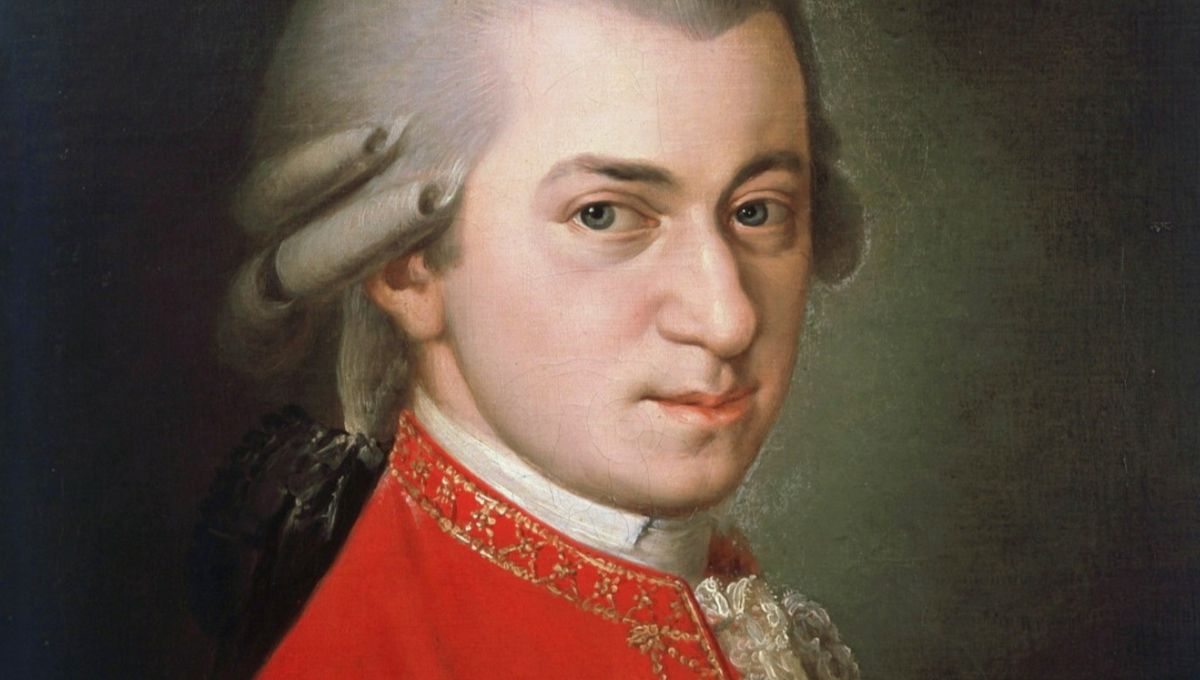
If everything people had said about the music of Mozart was true, the man would be a bona fide miracle-worker. After all, listening to the guy’s tunes has been said to increase intelligence for adults, children, and fetuses alike; it can supposedly make cows produce more milk and chickens lay tastier eggs; even single-celled organisms apparently aren’t immune to his melodious charms, with believers claiming that bacteria break down biomass quicker when they do it to a Mozartian soundtrack.
Of course, most of these claims have been thoroughly debunked over the years – Mozart isn’t a magic IQ-boosting life hack, it’s just easy listening. But one idea that’s held on longer than some others is the so-called Mozart Effect on epilepsy: that the music of Mozart – specifically his Sonata for Two Pianos in D major (K. 448) and Piano Concerto No. 23 (K. 488) – can somehow reduce epileptic activity in the brain.
The first hint that there might be something to this idea came a full quarter of a century ago now, when a 1998 study suggested that exposure to the classical composer could induce a dramatic reduction in epileptic activity during and between seizures. So striking were the results that in one patient, the study reported, “before the Mozart music, 62.0 percent of the time ictal [seizure] patterns were seen, during the music this value decreased to 21.2 percent and afterwards 50.0 percent.”
Now, epilepsy can be a debilitating and sometimes fatal disease, treated by medications that, if they work at all, often come with extreme side effects. If these results were accurate, however, it would mean that a quick dose of a sonata or two could potentially be an effective and non-invasive alternative for those with the condition.
So it’s not surprising that people were excited at the findings. Before long, a flurry of media exposure had taken the results public, with outlets claiming that the music of Mozart could even be “more effective at treating epilepsy than pills.”
We’re used to big claims here at IFLScience – and we’re equally used to the big disappointments that tend to come after. But unlike some other too-good-to-be-true results, this one seemed to hold up under further investigation. In fact, even as late as 2021, studies were still reporting positive effects from Mozart’s music on epileptic activity.
Could it be true, then? Did Mozart somehow stumble onto an effective treatment for epilepsy 250 years ago, encode it masterfully into music in between all the butt jokes, and we’re only just realizing it now?
Well, according to a new meta-analysis from psychologists at the University of Vienna, the answer is no. After scouring the literature for studies on the supposed effect, performing statistical analysis and weighting according to study power, “only little evidence for any meaningful beneficial effect of listening to Mozart’s sonata KV448 (or any other music) on epilepsy in particular or other medically relevant conditions in general,” the paper confirms.
So why all the seemingly positive results over the years? According to authors Sandra Oberleiter and Jakob Pietschnig, it’s all thanks to a triple-whammy of selective reporting, small sample sizes, and inadequate research practices.
For example, while some of the best-quality studies did find some small evidence for a Mozart Effect, further investigation found that the association “was driven by a single study that examined influences on third-party-reported pain perceptions of premature infants,” the authors report – not exactly a perfect basis for a conclusion on epilepsy.
Otherwise, though, those high-quality studies? They showed at best a “trivial positive” effect of Mozart on epileptic brain patterns, and at worst, an outright negative one.
Meanwhile, most of the studies that showed a strong positive effect were smaller, lower-quality, or suffering from some obvious bias. At the extreme end of this scale, the authors note, “all but one of the studies that had been excluded due to insufficient availability of (summary) data had reported a positive specific Mozart effect in their respective publications.”
Even more alarmingly, “the majority of primary data or even mere summary statistics that document the Mozart effect were unavailable even upon request from the authors,” the paper points out. In other words: some of the supposed strongest evidence for the effect? You can’t see it. It goes to a different school. In Canada.
In conclusion, then: the Mozart Effect can’t make you smarter, it can’t make you milkier, and it definitely can’t cure your epilepsy. Or, as the authors themselves put it in a statement this week: “Mozart’s music is beautiful, but unfortunately, we cannot expect relief from epilepsy symptoms from it.”
The study is published in Scientific Reports.
Source Link: "Mozart Effect" On Epilepsy Is Nothing But Bad Research, Meta-Analysis Concludes